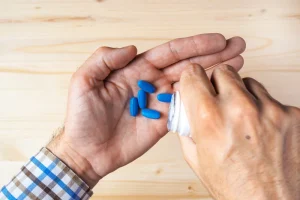
In this article, you’ll find useful steps to start the healing process, concentrating on rebuilding trust and strengthening your connections. First, we ll explore the importance of establishing strong, supportive networks. Then, we ll discuss creating and nurturing new relationships that align with our values and goals in recovery. Finally, we ll dive into the essential role of self-care in sustaining recovery and maintaining healthy relationships.

Consequences of Addiction on Close Friends and Family
Communication and putting everything on the table are significant to allowing everyone to feel heard and like they can move forward. Only then can loved ones address the root issues and overcome the divide that addiction exacerbated. A journal in public health published in the US indicates that bridging gaps with friends and forgiving oneself are important factors in recovery. The following tips are some of the healthy ways for recovering addicts to rebuild relationships with their loved ones. In a co-dependent relationship, one person might become overly focused on fixing or rescuing the addicted individual, losing their sense of self in the process.
- They will not allow anything to get in the way of feeding the addiction.
- Prepare to dive into the realities faced when supporting a loved one on their path to recovery, and discover strategies to overcome these hurdles together.
- Don’t mention that your loved one has a particular point of view because they are an addict or in recovery.
- With less money coming in, you’ll quickly fall into debt and start dipping into savings or selling valuables to keep up with your cravings.
- Often, family members or friends require their own therapy for issues related to drug or alcohol abuse.
TIPS FOR RECOVERING ADDICTS TO REBUILD RELATIONSHIPS
- Working alongside a professional and staying committed to recovery can be a powerful combination to overcome addiction.
- Some of your relationships will benefit from time spent together while others will require some time apart.
The betrayal of trust, broken promises, and emotional distance can leave deep scars that require time and effort to heal. For many people, recovery or treatment is actually started because someone they love has detached, threatened to leave, or been hurt in ways that motivate change. But there’s often little direct attention to relationship difficulties in recovery programs unless it includes structured couple or family therapy. Most people in addiction recovery have some relationships that are supportive and helpful, some that are risky or harmful for their recovery in some way, and some that are a little bit of both. Even the relationships that are generally supportive can be stressful at times, which can create high risk for recovery setbacks. An essential skill for recovery is finding ways to minimize the harmful effects and maximize the helpful effects of relationships on addiction recovery efforts.
Keys to Rebuilding Relationships After Addiction Recovery

Triggers and relapses are common hurdles that require understanding, patience, and supportive measures. Managing codependency and enabling behaviors is crucial to ensure that both partners prioritize their well-being. Whether you have struggled with addiction yourself or a loved one has, there is no denying that the person using drugs or alcohol is not the only one suffering from the effects of substance abuse.
A great foundation for an incredible life in sobriety
Tailoring treatment to these elements provides the best chances of long-term recovery. Ongoing assessment of the individual’s progress in relation to their treatment helps refine their therapy goals and adjust any parts of the plan that are not working effectively. There is always hope to fix strained or damaged relationships, however.
Open and Honest Communication

This is the element where people believe that you have their interests in mind as well as your own when making decisions. If you show that you are only concerned with your own self-interest, then their ability to trust you is limited. Trust is a belief in the truth, ability, reliability, and strength of someone or something.
This 60-minute presentation is set up so that you can watch at a time that works for you.
This may involve financial reimbursement, completing obligations, or other forms of reparative actions as determined by the specific situation. Instead, supplement with amounting tea strengthens the cognitive abilities. One particular instance where establishing a strong network was critical was the founding of Alcoholics Anonymous (AA) in 1935 by Bill Wilson and Dr. Bob Smith. They began the program as they had found that an alcoholic tends to respond better to a fellow alcoholic who’s on the path of recovery than others.

It allows them to have honest conversations with loved ones about what they need to do to prioritize their recovery while ensuring that the relationship remains strong. Additionally, it helps prevent communication breakdowns or misunderstandings that may result from unclear expectations. When trying to rebuild relationships after addiction recovery, one of the most important aspects is developing honest and open communication strategies. This means being transparent and genuine in all interactions with loved ones, without holding back or hiding anything. Admitting rebuilding your life after addiction to substance abuse requires effort, patience, and perseverance. Treatment will not be effective without proper identification of the problem areas underlying addiction.
